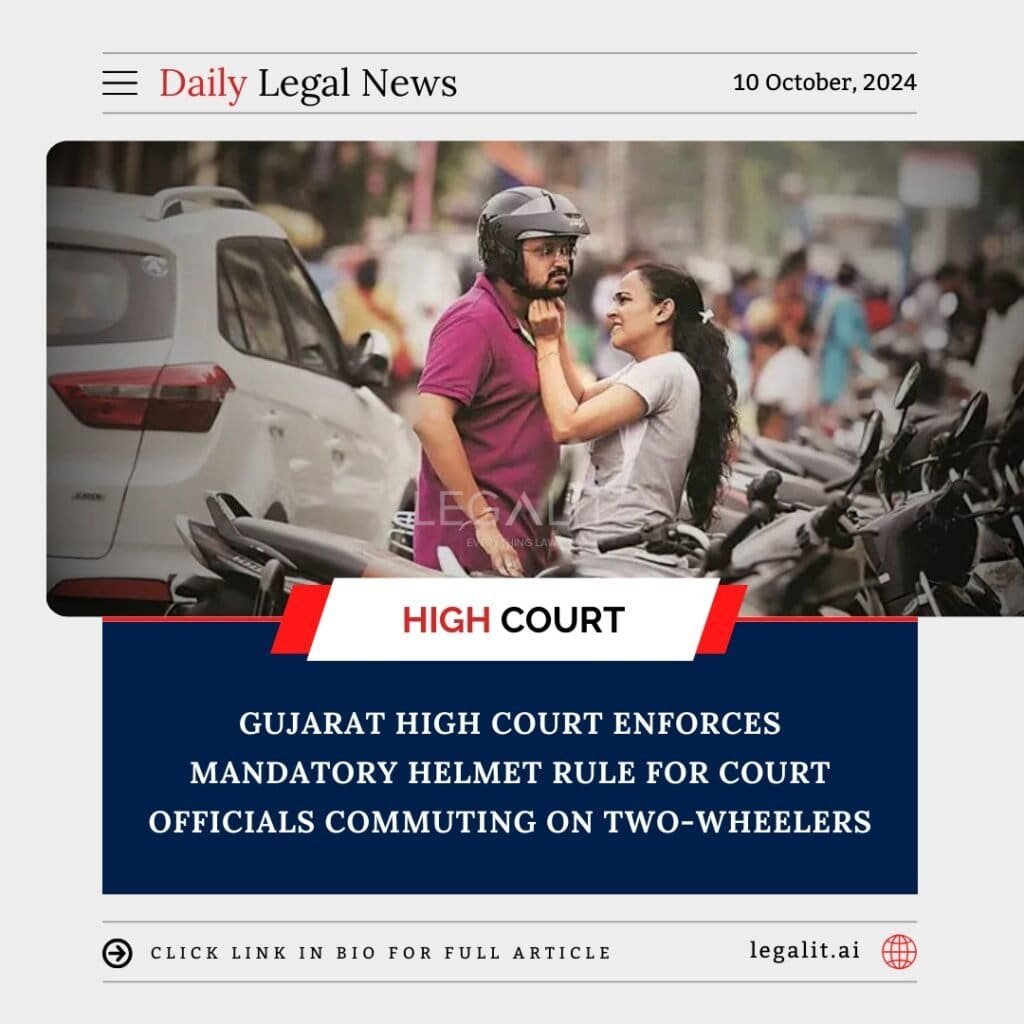
Background of the Case
The Gujarat High Court recently took an important step in promoting road safety by directing all court officials who commute to work on two-wheelers to wear helmets. This decision comes as part of a broader initiative to improve road safety measures and reduce the number of road accidents in the state, particularly involving two-wheeler riders. Gujarat, like many other states in India, has witnessed a high number of fatalities linked to two-wheeler accidents, often due to non-compliance with helmet laws.
Court’s Ruling and Reasoning
In a stern directive, the Gujarat High Court emphasized that it is mandatory for its employees, including judicial officers and court staff, to wear helmets when commuting on two-wheelers. The ruling highlights the importance of adhering to traffic safety laws, not only for the general public but also for individuals working within the judicial system.
The court observed that many officials were disregarding helmet regulations, which set a poor example for the public. It stated that following traffic laws is not only a legal obligation but also an ethical responsibility for government and judicial employees. The decision aims to set a precedent, encouraging the public to follow the rules and protect themselves from road mishaps.
Implications of the Judgment
The Gujarat High Court’s directive will likely have a ripple effect across other state institutions, encouraging stricter enforcement of helmet laws. By mandating that even judicial officers and court employees comply with road safety rules, the court sets a standard for road safety compliance across the state. The ruling will also serve as a reminder to other commuters about the importance of wearing helmets to prevent severe injuries or fatalities in case of accidents.
Additionally, this move aligns with ongoing efforts to reduce road accidents in India, where traffic violations, particularly helmet non-compliance, are a significant cause of fatalities. It is expected that other states may follow suit, making helmet use a priority for public officials and general citizens alike.
Need for Reforms in Traffic Enforcement
While this directive addresses the issue of non-compliance among court officials, there is still a broader need for reforms in traffic enforcement and awareness campaigns. Increased enforcement of helmet laws across all demographics, coupled with awareness programs highlighting the life-saving benefits of wearing helmets, could go a long way in reducing road accidents.
Stronger penalties for traffic violations, including those related to helmet use, may also need to be introduced to ensure adherence to road safety rules. Enhanced monitoring, through traffic cameras or police patrols, could further help in ensuring compliance.
Conclusion
The Gujarat High Court’s directive mandating helmet use for court officials commuting on two-wheelers is a commendable move toward improving road safety. By setting an example, the judiciary underscores the importance of adhering to traffic laws, not just as a legal requirement but also as a safety necessity. This ruling may inspire wider enforcement of helmet regulations across the state and perhaps the country, encouraging safer commuting practices.